What media moralisers (like Ray Martin) should remember
The genre of campaign journalism evident throughout the Higgins mess led to good and decent people being damaged. When curiosity went out the door, the biggest loser was the search for the truth.
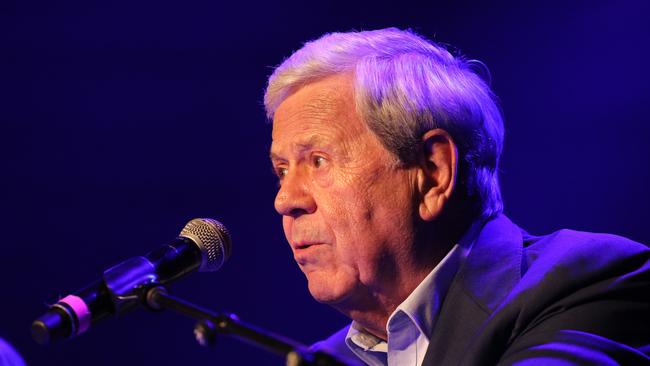
He claimed the “salacious intrigue of sex, drugs and lies” surrounding Seven’s Spotlight program reflected badly on every television network, every news brand and every journalist. The “biggest loser” was journalism, decreed the former TV host.
It must be exhausting carrying around that much faux morality on behalf of every Australian journalist. Lighter than the real stuff, to be sure, but still fatiguing.
It’s tempting to indulge those in the media who love making a story about themselves. Not to mention those who may celebrate the exit this week of Spotlight’s executive producer Mark Llewellyn. But intellectual rigour demands we test the calibre of the moralising over Spotlight and associated claims that paying for an interview is squalid, as the SMH editorialised during the week.

The first thing to note is that some self-appointed preachers of journalistic standards seem to have a poor grasp of the difference between allegations and proven facts.
On the eve of judgment being given, Taylor Auerbach, a disgruntled former employee of Spotlight, interrupted the defamation case Lehrmann had brought against Network Ten and Lisa Wilkinson to make unproven allegations that he spent thousands of dollars on Seven’s corporate credit card buying cocaine, boozy dinners and hookers to seduce Lehrmann into giving an exclusive interview to Spotlight. He said his bosses condoned it.
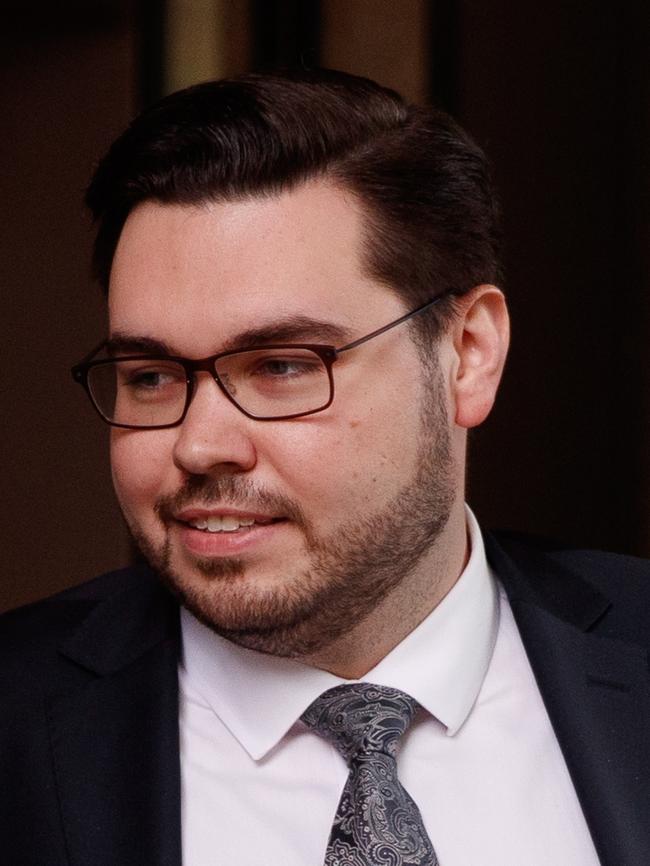
As if these claims were not sufficiently salacious, Auerbach threw in allegations of bullying and anti-Semitism at the program. He said Lehrmann was the source of material used in the interview that aired in August last year and that he believed a lawyer had suggested they destroy documents.
Auerbach’s allegations were not tested in court. Seven has denied them. Lehrmann has denied them.
One would have thought those taking the high moral ground on journalistic standards might uphold the golden rule: be curious, search for the facts. The documented evidence produced to the court, after all, told a different story.
It was indeed salacious – but it concerned the ex-producer at Spotlight, not the entire team.
Auerbach sent an email to his boss, Llewellyn, expressing “profound regret and immense remorse” the morning after his night of drugs and exotic massages. Auerbach wrote “I have let you down” and “I am devastated”. “I tender my resignation,” he wrote, before setting out how, in a drunken daze, he “put thousand upon thousand of charges on the corporate credit card for something that had nothing to do with work”.
“I spiralled out of control,” he told his boss, adding: “of course, I will pay it all back when I can get the money.”
“I am disgusted with myself and I apologise with every cell in my body,” he wrote.
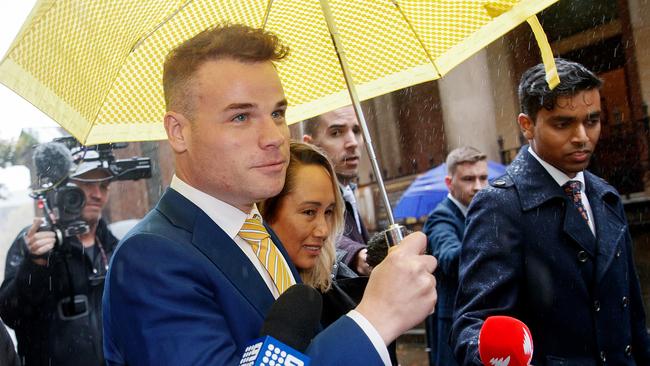
Spotlight producers recognised it was wrong. They ensured Seven did not pay for Auerbach’s drugs and prostitutes bender. Their mistake, in retrospect, was that they didn’t sack Auerbach.
Instead, Llewellyn gave the young man, who told the court he was at one stage drinking 30 standard drinks a day, a second chance. Llewellyn has now left Seven, because offering someone a second chance is not popular in this trigger-happy age of snap judgments.
If Auerbach’s allegations are proven, critics should go their hardest against Spotlight or any other workplace that condones coke for comment and hookers to procure an interview. Until then, condemning an entire show, claiming there is a wicked culture, then condemning the entire network for Spotlight’s unproven sins, as a bunch of journalists at Nine did, is not a sign of quality journalism.
Likewise, claiming, as Martin did, that the whole profession has been damaged is confected catastrophising.
To be sure, it’s titillating for reporters and editorial writers to write about hookers and drugs, golf and dinners with expensive steaks. But shouldn’t journalists focus on the facts rather than froth about entirely untested and hotly disputed allegations by a disgruntled former employee?
Auerbach’s professional life has come crumbling down, not just at Spotlight after his $10,000 binge. Though he claimed he was promoted and scored a pay rise, there is no independent evidence of that. What is clear is that his contract was not renewed by Seven. Auerbach didn’t hide his ill-will towards those he worked with at Spotlight. In October last year he posted a demented video of himself breaking golf clubs owned by former colleague Steve Jackson over his knee. Auerbach told the court he hated Jackson.
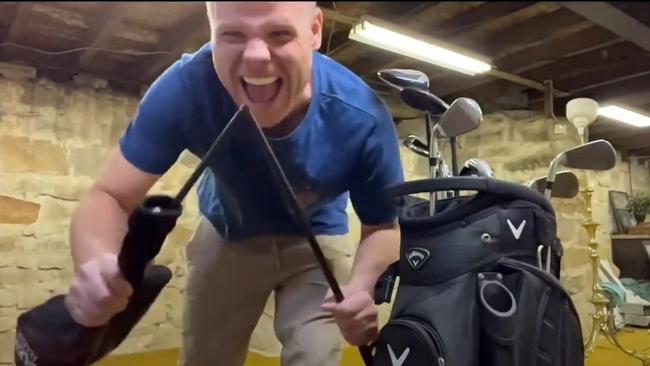
Auerbach was sacked from his more recent job at Sky News for “trust and confidence” issues after media reports that a Spotlight producer had booked masseuses on a Channel 7 corporate credit card after dinner with Lehrmann. The court heard that Auerbach also distributed photos of a semi-naked woman to some journalists in his apparent vendetta to harm Jackson, who had secured a new job with the NSW Police Commissioner. Jackson lost that job because NSW Police said they didn’t want the distraction.
One might think these media moralisers would be curious about the damage the Higgins saga continues to wreak on people, arising from more and more untested and disputed allegations. Instead, they turn a blind eye.
Notice also the absence of outrage from the media priests and priestesses that a male journalist distributed photos for publication by other journalists of a semi-naked woman without her consent. Auerbach admitted to it in court. It is potentially a criminal offence.
Those claiming the moral high ground this week expose, yet again, the fundamental problem at the heart of the never-ending Higgins scandal. The moment the saga started to get more complicated, with different perspectives being put that challenged some of Higgins’s claims, many journalists who were initially so keen to tell the Higgins story went to sleep.
Their self-induced slumber wasn’t interrupted even when Ten and Wilkinson preened at the Logies about Higgins – within days of a criminal trial. That behaviour by Ten and Wilkinson potentially undermined a fair trial and forced ACT Chief Justice Lucy McCallum “through gritted teeth” to delay it.
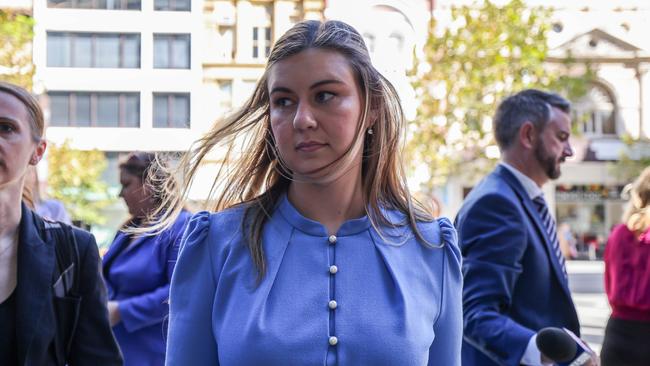
Martin and others could then have remonstrated to their hearts’ content about journalism being tainted by the actions of a few journalists who, according to McCallum, “obliterated” the distinction between an allegation and a finding of guilt.
Why no howls about journalistic ethics when a senior judge said her trust in the media had been “misplaced”? Or are unproven allegations of Spotlight bosses condoning exotic massages and drugs more salacious than journalists undermining a fair trial?
There is a direct line between the journalistic flaws that turned the Higgins scandal into a diabolic media and political juggernaut, and those thrilled to be wagging their finger at Spotlight. Sections of the media continue to deploy very serious but entirely untested allegations to besmirch the reputations of others. And the line between the two sagas is no coincidence, given that Spotlight interviewed Lehrmann.
It is not quality journalism when journalists stop searching for facts or turn a blind eye to facts that have come to light by the efforts of others, and instead continue to make do with allegations that suit their version of who are the villains and who are the victims in this national melodrama.
The SMH editorialised last week about how “the squalor of buying a scoop undermines good journalism”. Was this a spoof editorial for a new series of Frontline?
Nine could have been a legitimate critic of its arch rival Seven had it chosen some proportion, logic and a focus on known facts. There was, after all, some grounds for criticism.
The Spotlight team was wrong not to disclose that they paid Lehrmann’s rent. Viewers should have been told about it and then trusted to make their own judgments about whether an unemployed man who didn’t have a book deal or receive a payout from the federal government, and who says he was wrongly accused of rape, was worth listening to. Seven and Spotlight did themselves no favours keeping that quiet.
But it is gold medal-level hypocrisy for the SMH, owned by Nine, to condemn a media outlet for paying someone to tell their story. Lindy Chamberlain reportedly was paid $250,000 for her interview with Martin in 1986. Many people have been paid to tell their stories.
And why not? Media networks make money from telling a person’s story, so why wouldn’t the person sharing that story want to be paid? Stuart Diver, the sole survivor of the Thredbo disaster, was rumoured to have received $250,000 from the Seven Network. The family of abducted toddler Cleo Smith received $2m from Nine’s 60 Minutes. Woman’s Day paid Bob Hawke some dough so readers could learn about his relationship with Blanche d’Alpuget.
Many former current affairs producers from across different TV networks who spoke this week to Inquirer on condition of anonymity say no one in the media wants to pay for an interview. It means less money for other projects. But the reality is that some people with a story to tell want to charge for it. That story often involves a person whose life has been turned upside-down by events, who has suffered and may be penniless as a result of what has happened to them.
As one former senior producer from Nine tells Inquirer, the sanctimony this week has been insufferably hypocritical.
“The same people condemning chequebook journalism this week don’t hesitate for a minute if their own source is giving them a story to seek revenge, or because they’re unstable, or because they don’t really understand the consequences of what they’re saying, or because they will get some kind of other future benefit, like a book deal down the road,” the former senior producer says. “I can’t see the big moral distinction.”
Another former senior producer at Nine points out “once money changes hands, the interview becomes more transactional”. The person being interviewed has less leverage to say some topics are off the table, he says, before adding that Liam Bartlett did not shy away from asking Lehrmann hard questions on the Spotlight interview.
“When you pay for a story, they’ve got to sit in the chair and cop it,” says another producer from a different network. Unpaid interviewees can attach conditions and limits to their willingness to be interviewed.
There are many more things worse than so-called chequebook journalism. For example, the genre of campaign journalism evident throughout the Higgins mess led to good and decent people being damaged. When curiosity went out the door, the biggest loser was the search for the truth.
The hypocrisy doesn’t end there. Many of the same journalists have been obsessed about where other journalists have received information. These journalists want us to reveal our sources. Seriously?
Even in a half-sane world, journalists would agree on one principle: we don’t reveal our sources. Ever. But no, in this saga not even that principle is sacrosanct anymore. Little wonder, then, that many in the media have displayed insouciance about other foundational principles, such as a fair trial and the presumption of innocence. When these principles don’t apply to them one day, expect to hear some serious outrage.
On Monday, Federal Court judge Michael Lee will look carefully at the evidence and the allegations made by each of the witnesses and the parties to the proceedings, analyse their motivations, their credibility and only then make findings of fact.
The moralisers in the media could learn something here.


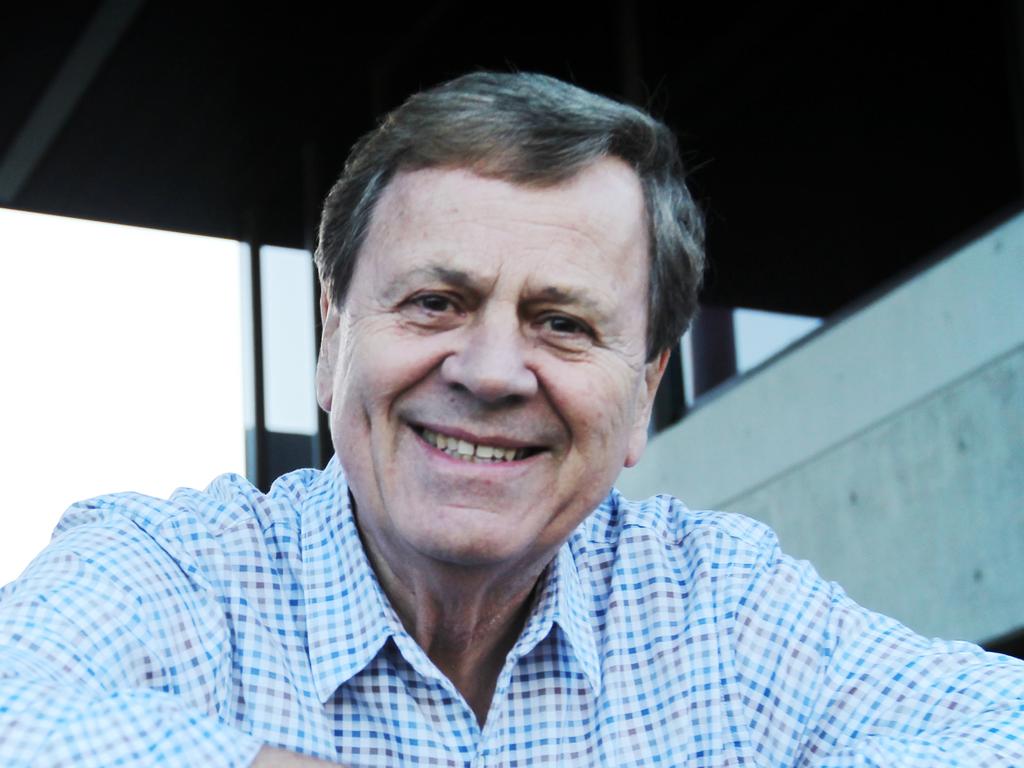
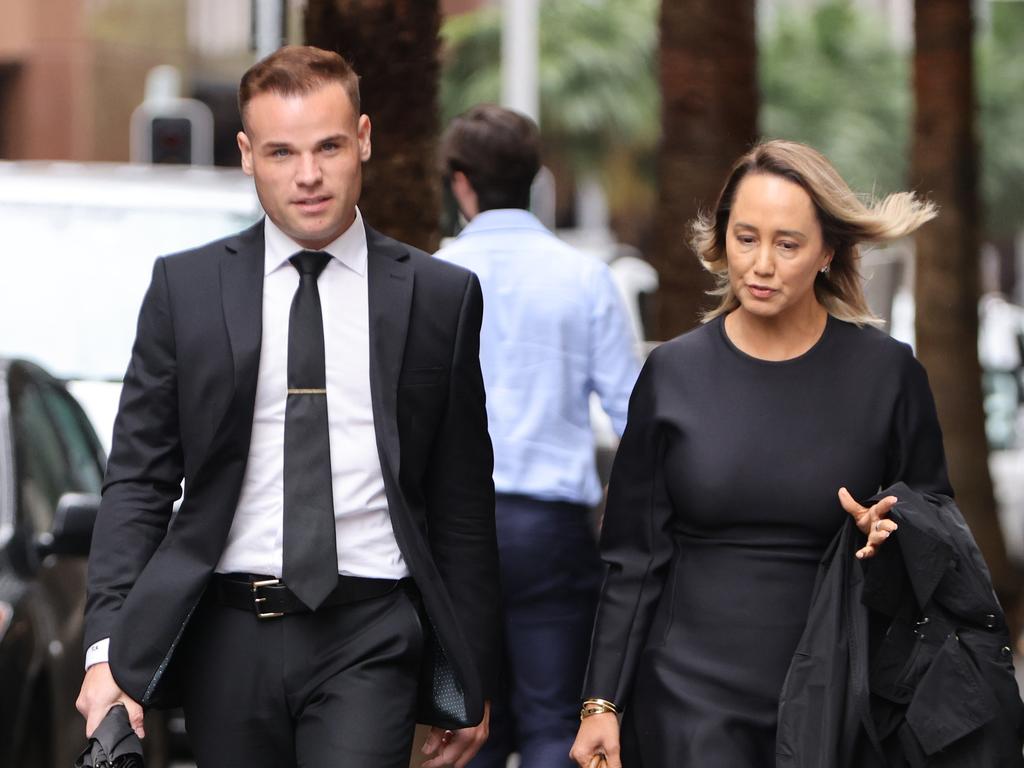
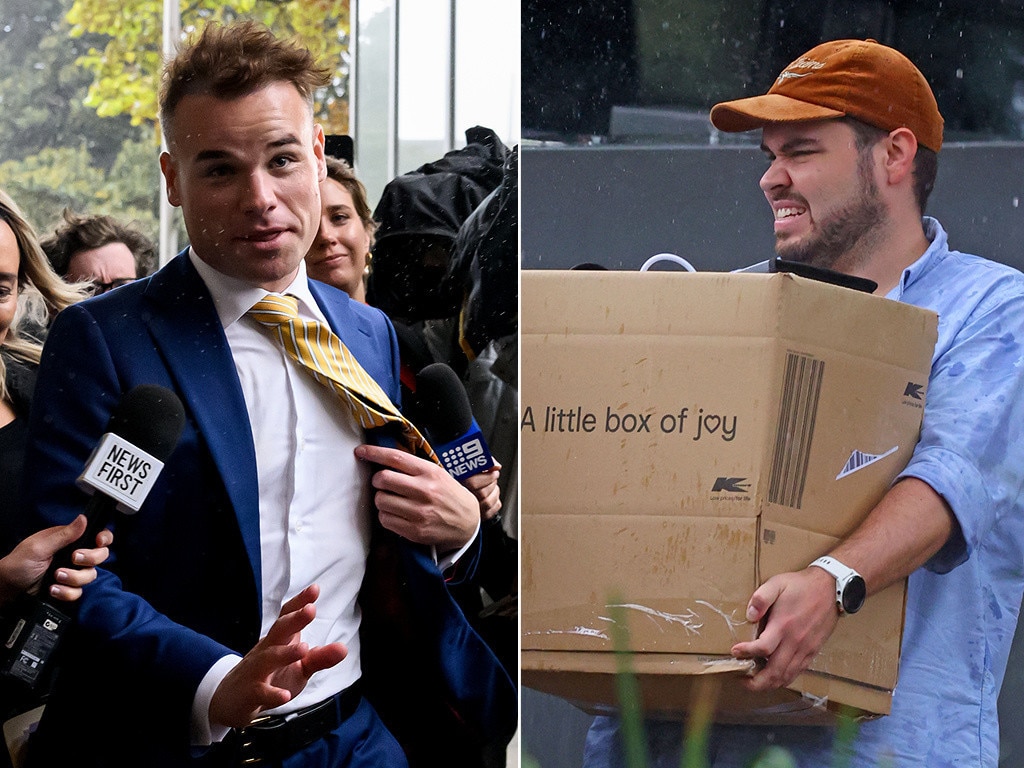



Last week former Nine Network current affairs host Ray Martin took a long swipe in The Sydney Morning Herald at the “tawdry, bungled saga of Channel Seven’s ho-hum interview with Bruce Lehrmann”.